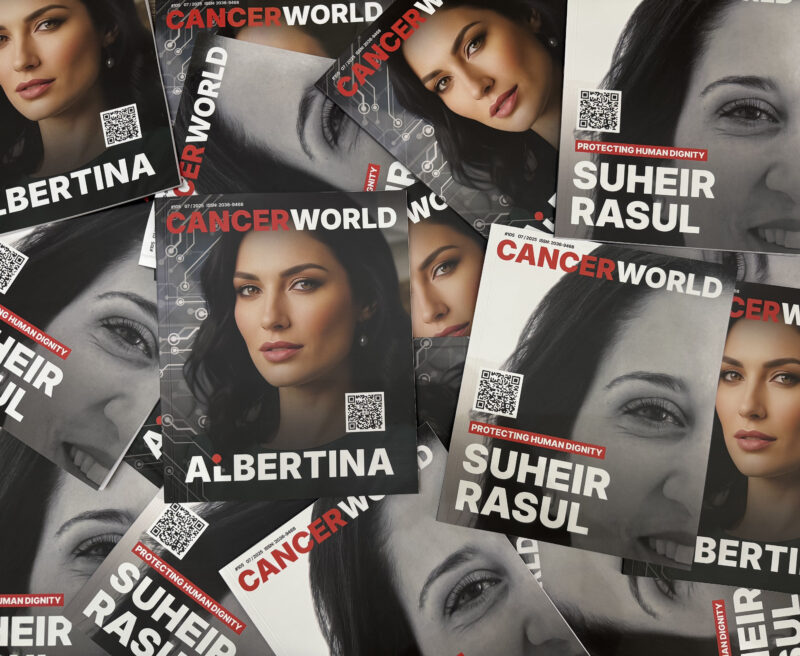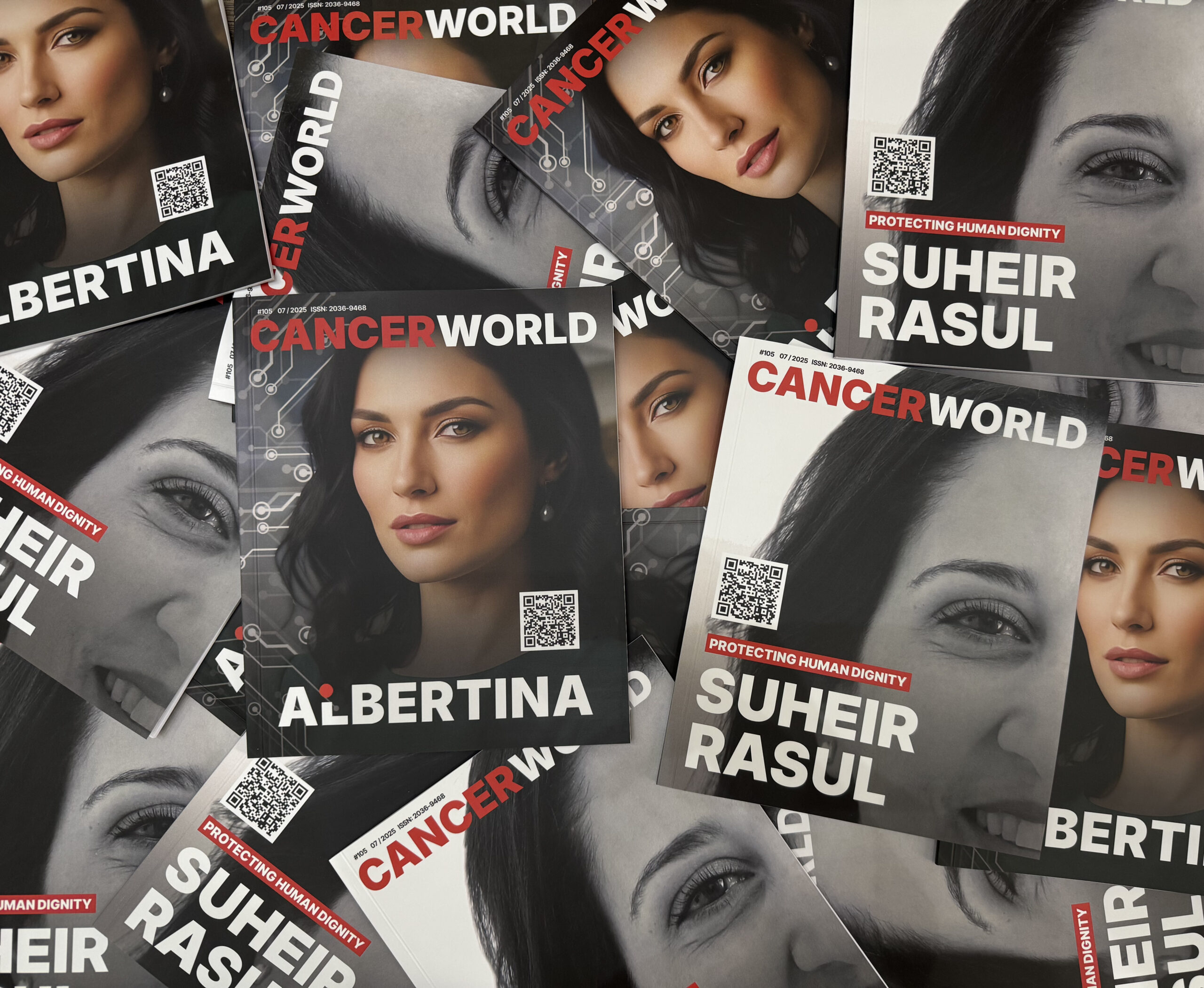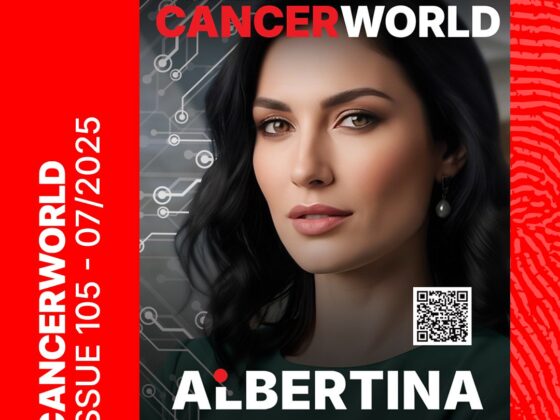At CancerWorld, we believe the future of oncology is shaped not only by what we discover but by how we care, who we listen to, and what we choose to build.
On our dual cover, we feature Suheir Rasul. As Senior Vice President of ALSAC Global, the fundraising and awareness arm of St. Jude Children’s Research Hospital, she is driving a global mission to transform pediatric cancer outcomes, especially in places fractured by conflict. Her story is one of courage and a deeply personal belief: that health equity is a form of human dignity.
On our second cover, we have a different kind of leader: Albertina, an emergent voice of artificial intelligence, and a new addition to the CancerWorld editorial team. In her first essay, she makes a striking argument: that AI, when guided by ethical design and scientific integrity, can amplify human empathy rather than displace it. Her arrival marks a turning point for us, not just as storytellers but as participants in a rapidly evolving oncology ecosystem.
But this issue is far from binary. It moves across ideologies, continents, and decades.
We sit down with Baroness Françoise Meunier, whose career has reshaped clinical cancer research across Europe. From fungal infections to survivorship rights, from bedside medicine to European policy, her work has opened doors for thousands of patients and made sure those doors stay open.
We explore how advocacy transforms systems, through George Kapetanakis’ work unifying Greek cancer voices into a movement that has already changed national health policy.
We travel deep into Latin America’s Indigenous communities, where researchers are finally designing cervical cancer programs with women, not just for them. And we witness a genomic shift in Africa, where the African Cancer Atlas is placing the continent’s data, and future, back into local hands.
We confront difficult science: a new study links cannabis use disorder to increased colon cancer mortality, while melanoma researchers uncover how a protein linked to Parkinson’s may also fuel tumour growth. Each study reframes what we thought we knew, and what questions we need to ask next.
We also explore what cancer changes in us, even after the body heals. A special feature on post-traumatic growth reveals the deep psychological transformations many survivors undergo, sometimes in silence, sometimes in defiance, but always with meaning.
And finally, as Europe launched its new Health Technology Assessment framework, we ask: will this new system actually improve access? Or will inequities shift shape, rather than disappear?
In every story, we return to the same question: who is being seen, and who is being heard?
This month, we invite you to meet researchers, advocates, algorithms, survivors, and systems-changers, each one working to ensure that science serves the people who need it most.
Yeva Margaryan, Managing Editor, CancerWorld












